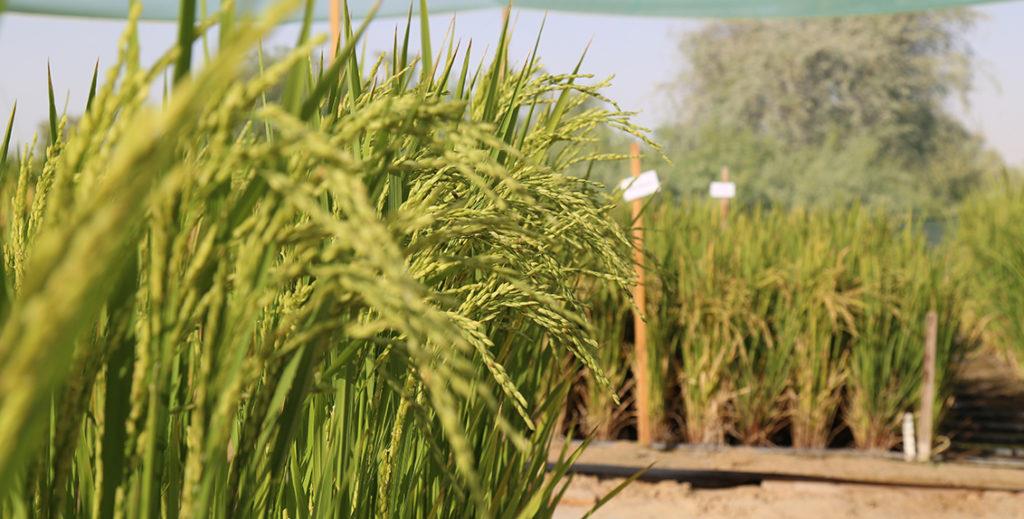
UAE to rework agriculture in bid to address global warming
São Paulo – The UAE's Emirates Food Security Council approved the creation of the new 'Climate Change Impact System' to transition to more sustainable food systems. State-run news agency reported that the country is getting ready to take on the potentially negative impacts of ongoing global warming. Pictured above, UAE researchers are testing salt-tolerant rice varieties that can withstand desert conditions.
In addition to providing invaluable data to support decision-making regarding actions and areas for investment, the system is part of the UAE's commitment to supporting the vision and objectives of the Leaders' Summit on Climate earlier this month, whose forty invited countries included the UAE.
In addition to the new system, the Summit saw UAE vice president and prime minister and Dubai ruler Mohammed bin Rashid Al Maktoum announce the Agricultural Innovation Mission for Climate (AIM for Climate), designed to speed up agricultural research and development over the next five years to offset climate change.
UAE minister of State for Food and Water Security and Emirates Food Security Council chairwoman Mariam Almheiri said climate change is 'the most the most pressing issue facing the global community and urgent action is needed to tackle it before we reach the stage of no return. Food systems are integral to how we address climate change as they are not only one of its largest contributors, they are also the sector most heavily impacted by it.'
Almheiri said the new system's data will help create a global food security model in line with global climate goals. More efficient and sustainable food systems will increase yields and minimize usage of non-renewable resources and energy. 'The development of adaptation and mitigation strategies and innovations supported by evidence-based research is crucial for sustainable agriculture and food security in marginal environments where the impact of climate change is likely to be significant,' said the Acting Director General of UAE-based International Center for Biosaline Agriculture (ICBA), Tarifa Al Zaabi.
The ICBA entered into a . According to WAM, the system is based on an understanding of the potential impacts of climate change on food production in the UAE and the partner countries that supply much of its food. The project comes in response to 'observed trends of global temperatures rising by 0.33 C per decade since 1971 and which are projected to increase between 2 C and 5 C by the end of the century,' WAM reported.
Translated by Gabriel Pomerancblum
ICBAThe post appeared first on .
.jpg)
Legal Disclaimer:
MENAFN provides the
information “as is” without warranty of any kind. We do not accept
any responsibility or liability for the accuracy, content, images,
videos, licenses, completeness, legality, or reliability of the information
contained in this article. If you have any complaints or copyright
issues related to this article, kindly contact the provider above.


















Comments
No comment